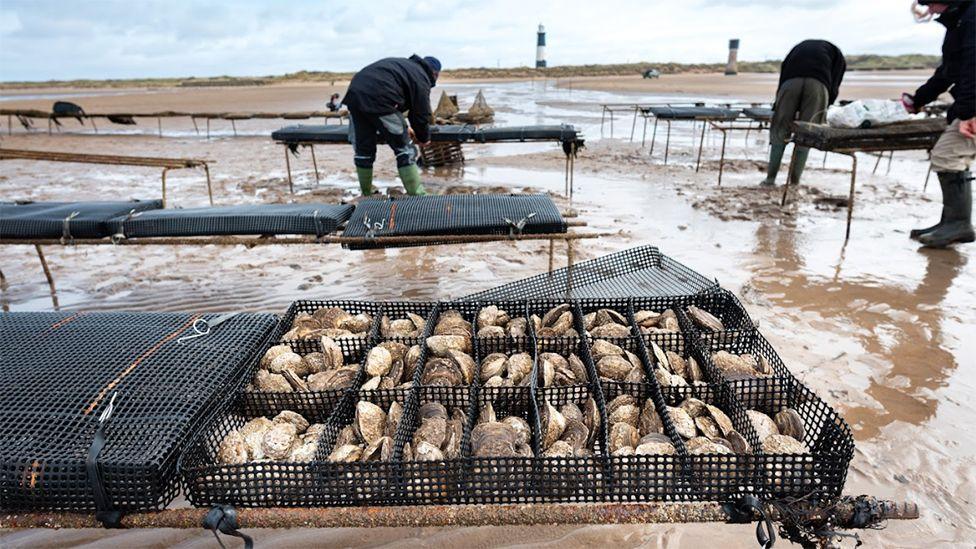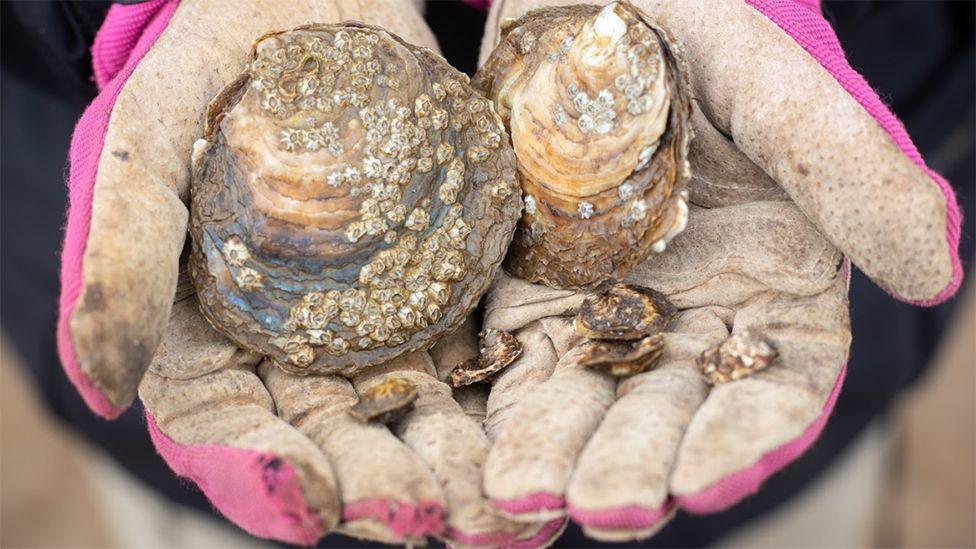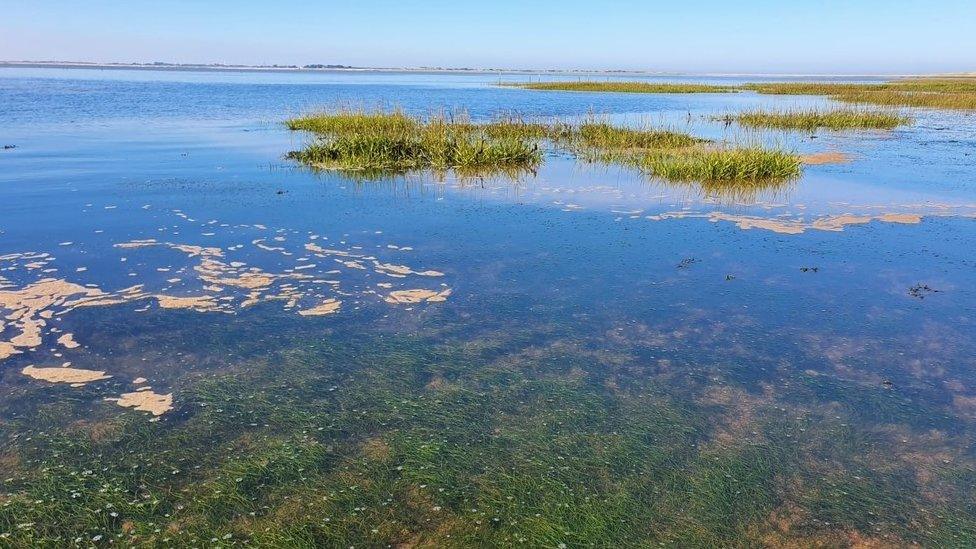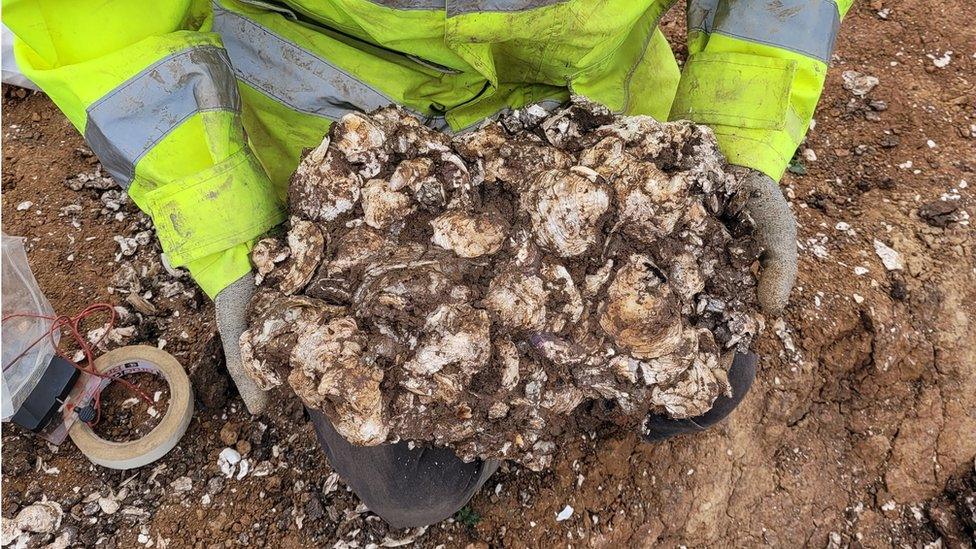New breeding technique aims to bring back oysters

The scallop shells containing the oyster larvae are placed in a nursery at Spurn Point
- Published
A wildlife project is using a new technique to reintroduce shellfish to the East Yorkshire coast.
Wilder Humber aims to reintroduce 500,000 native European flat oysters to the Humber estuary over the next five years.
A new method is being tested where oyster larvae are placed in a tank filled with scallop shells.
The larvae attach to the shells which are then transferred to an oyster nursey at Spurn Point to grow, before being released into the Humber.
The estuary was once home to a thriving oyster reef that was so large it was listed as a hazard to shipping, Wilder Humber said.
Overfishing, disease and a reduction in water quality led to a decline.
The oysters are being introduced as a way of tackling pollution - a single adult oyster can filter and clean 44 gallons (200 litres) of water in a day.
As well as cleaning-up the water, when the oyster beds are established they will provide a habitat for other marine wildlife.

The oysters help filter the water and provides a home for other marine wildlife
Dr Nik Sachlikidis, CEO of The Oyster Restoration Company which is supplying the larvae, said the "ground breaking project" was the first of its kind in the UK.
"We are taking a major step towards scalable onshore and offshore deployment that will significantly enhance biodiversity," he said.
"The positive impact of native oysters on marine ecology is profound, and together, we are paving the way for further native oyster restoration projects, ensuring a healthier and more resilient environment for the future."
Wilder Humber is a collaboration between Yorkshire and Lincolnshire wildlife trusts and offshore wind company Ørsted.
Follow BBC East Yorkshire on Facebook, X (formerly Twitter), external, and Instagram. Send your story ideas to eastyorkslincs.news@bbc.co.uk, external
Related topics
- Published17 April 2023

- Published23 May 2024
